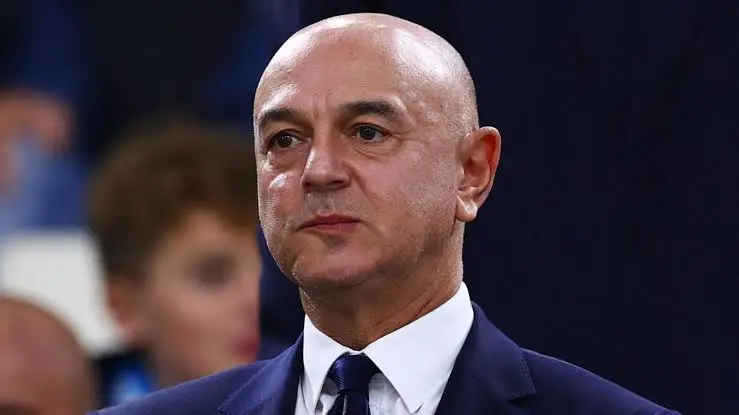In a significant financial move, Tottenham Hotspur’s ownership has infused the club with an additional £35 million.
This substantial investment, unveiled through a recent Companies House submission, underscores the owners’ commitment to sustaining the club’s operations during a tumultuous season.
The latest financial injection saw Tottenham Hotspur Limited issuing 5.8 million shares, raising a total of £35 million. According to the shareholder information available on the club’s official website, the investment has resulted in ENIC slightly increasing its stake from 86.58% to 86.91%. This marginal rise in shareholding reflects a strategic reinforcement of ENIC’s position within the club’s financial structure.
Under the stewardship of Ange Postecoglou, Tottenham is navigating a particularly challenging season. Currently languishing in 14th place on the Premier League table, the club’s performance has fallen short of both expectations and forecasts. This downturn has raised questions about the underlying financial health and operational strategies being employed to stabilize the team.
Financial experts suggest that the recent £35 million injection is unlikely to signal any imminent aggressive spending on player acquisitions. Instead, the funds are expected to bolster the club’s working capital, addressing general operational expenses that have been a concern this season. This strategic allocation aims to ensure that the club can maintain its day-to-day functions without the immediate pressure of enhancing the squad.
Moreover, a portion of the funds may be directed towards smaller transfer payments, possibly serving as first instalments for potential acquisitions. However, this approach indicates a cautious stance rather than a bold bid to reshape the team overnight. The financial prudence exhibited by the owners suggests a focus on long-term stability over short-term success.
Advertisement
Latest Press Conference
We’re on Social Media



Despite the financial boost, Tottenham is projected to finish the season below their initial forecasts. This expectation aligns with the current standings and the ongoing struggles on the pitch. The club’s ability to navigate these challenges will be crucial in determining its trajectory for the remainder of the season and beyond.
Ange Postecoglou’s management has been under scrutiny as the team grapples with inconsistent performances. The financial support from the owners provides a buffer, allowing the coaching staff to implement necessary adjustments without the immediate pressure of financial constraints. This support could be pivotal in addressing both on-field and off-field challenges.
Tottenham’s financial strategy appears to balance operational needs with measured investment in the squad. By maintaining a controlled wage bill and leveraging their substantial stadium revenues, the club aims to sustain its financial health despite the current sporting setbacks. This balanced approach is essential in ensuring that the club remains competitive without overextending its financial commitments.
The injection of £35 million also reflects the broader economic landscape of football, where financial resilience is as critical as sporting prowess. Clubs like Tottenham must navigate fluctuating revenues, especially in seasons where performance impacts sponsorships and matchday income. Strategic financial management becomes paramount in such contexts.
Looking ahead, the financial stability provided by this investment could enable Tottenham to explore strategic opportunities in the transfer market. While no dramatic signings are anticipated, the club remains open to strengthening the squad with targeted acquisitions that align with their long-term vision.
The club’s commitment to maintaining a robust financial foundation is evident in their cautious yet proactive approach. By ensuring that operational costs are covered and keeping an eye on potential transfer opportunities, Tottenham aims to navigate the current season’s challenges while laying the groundwork for future success.
Tottenham’s enormous stadium remains a significant asset, providing substantial matchday revenue that supports the club’s financial health. This revenue stream is crucial in offsetting the costs associated with maintaining a competitive squad and investing in club infrastructure.
The current season’s performance challenges highlight the need for both financial and strategic adaptability. Tottenham’s ability to leverage their financial resources effectively will play a critical role in their pursuit of improvement in the standings and overall club performance.
As the season progresses, Tottenham’s management will need to balance immediate operational needs with strategic investments that can enhance team performance. This dual focus is essential in ensuring that the club not only survives the current difficulties but also positions itself for future achievements.
Fans and stakeholders will be closely monitoring how the £35 million investment impacts the club’s performance and financial stability. Transparent communication and effective utilization of funds will be key in maintaining trust and support from the fanbase.
In conclusion, Tottenham’s £35 million financial injection represents a strategic move to stabilize the club amidst a challenging season. By focusing on operational needs and maintaining a cautious approach to player acquisitions, the owners aim to ensure long-term sustainability and resilience. As the season unfolds, Tottenham’s ability to leverage this investment will be crucial in determining their path forward both on and off the pitch.
